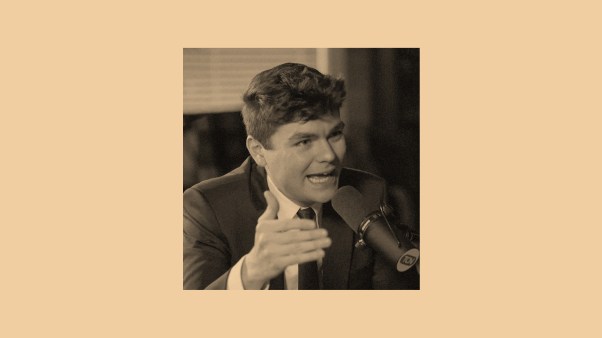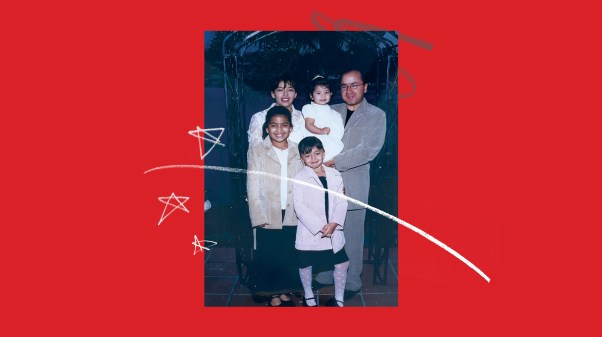“When the religious history of the twentieth century is written, perhaps one of the events of lasting importance will prove to have been the intervention of the Roman Catholic bishops in Puerto Rican politics.”
So says Dr. Val Clear, who has prepared forCHRISTIANITY TODAY the following interpretative report on Church-State tensions in Puerto Rico with special attention to the now-famous pastoral letters issued by Roman Catholic bishops prior to last November’s election. Dr. Clear is chairman of the Department of Sociology and Social Work at Anderson College, Anderson, Indiana, on sabbatical leave for 1960–61. He is currently teaching at El Seminario Evangélico de Puerto Rico and also serves as planning consultant for the National Council of Churches Division of Home Missions.
The Puerto Rican legislature is investigating alleged irregularities in the 1960 election campaign which saw widely-publicized but unsuccessful intervention by Roman Catholic bishops. Target of the investigation is the Christian Action Party, closely linked with Puerto Rican Catholicism. In mid-January, both legislative houses voted unanimously to unseat two Christian Action Party members. The government is now trying to establish that their candidacies were fraudulently obtained.
[Roman Catholic Bishop James E. McManus of Ponce charged last month that the joint legislative inquiry was an attempt by the Popular Democratic Party of Governor Luis Muñoz Marin to destroy the Christian Action Party, supported by McManus and the island’s two other Roman Catholic bishops.
McManus made his charge in a memorandum to Roger N. Baldwin, adviser to the American Civil Liberties Union, who testified at a series of hearings being conducted in connection with the legislative investigation. The bishop questioned the authenticity of witnesses who testified that their names and fingerprints were falsified on registration petitions.
Earlier in the investigation, a Catholic party member of the legislature had issued counter-charges of fraud against the Popular party.
The Catholic party had received an eleventh-hour approval to appear on last November’s ballot after registering 80,000 petitions in three months. In the election it received only 51, 109 votes.]
The reverse-field running of the hierarchy last fall left the Puerto Rican Roman Catholic uncertain as to his soul’s condition from one edition of the paper to the next.
The action of the bishops in the campaign, although crushingly repudiated at the polls, was a warning to the governor that the Roman Catholic hierarchy inintended to oust him.
Clouds had been gathering for some time, portending an ecclesiastical storm.
An agile statistician has pointed out dramatically that if continental United States were as heavily populated as Puerto Rico it could contain every person now living on earth. To tackle this problem of over-population the politically and socially liberal Popular Democratic Party of Governor Luis Muñoz Marin has set up a governmentally sponsored program of birth control. And when the Roman Catholic church sought by legislation to get released time for religious instruction, the government successfully resisted the move. The church subsequently decided to purge the incumbent government, the Popular Democratic Party, which is the unofficial but unmistakable Puerto Rican wing of the Democratic Party of the American mainland.
With the unofficial but obviously indispensable approval of the bishops, a political party was organized to promote “Christian” principles in government. Although it is often referred to as “Catholic Action Party,” its official name is “Christian Action Party.” It is more familiarly known by its initials, “PAC.” By indirection on several occasions the bishops have endorsed the formation of the party, but this approval still remains unofficial.
Three weeks before the election the three Roman Catholic bishops of Puerto Rico (two of them born and reared in American Catholicism) issued a pastoral letter commanded to be read in all churches the following Sunday. It attacked several specific paragraphs in the Democratic platform, but attention in succeeding weeks was to be centered on the objection to the section of the platform which said, “The democratic philosophy of our party implies that only those acts which the general consensus of Puerto Rican opinion considers immoral can be officially prohibited, such as murder, robbery, etc.; but that it is not proper that a government of liberty officially prohibit those acts toward which a considerable part of the population sustains a judgment that they are not immoral.”
This, said the pastoral letter, “is anti-Christian and anti-Catholic and it is based on the modern heresy that the popular will and not the divine law decides what is moral or immoral. This philosophy dispenses with the Ten Commandments of God and permits popular and human judgment to replace them.”
So, the bishops said, aware of their duties, they were obliged to condemn this philosophy and to forbid Catholics to give their votes to such a party. It was not their intention to impose Catholic morals on the government or the citizenry, but merely to tell Catholics that they could not vote for the PPD or any other party with such a philosophy.
The storm which accompanied the first pastoral letter was intense. Without exception all newspapers opposed the bishops editorially. A retired Supreme Court Justice, university professors, mayors—all said the action was not only bad religiously but indefensible politically. The Bar Association had a heated nine-hour session terminating in a 417–188 vote to disapprove the pastoral letters “most energetically.” The general initial reaction appeared to be overwhelming disapproval. Later the support for the letters was organized efficiently and the effect of generations of preconditioning in this Catholic society produced its result.
Confusion was general, however, as to the nature of the prohibition. The first letter forbade any Catholic to vote Democratic. Did this mean it was a sin to vote Democratic? Yes, said Bishop McManus. No, said Archbishop Davis, it is not. Well, said Bishop McManus, it is a sin but without punishment. No, said Cardinal Spellman, it is not a sin to disobey a pastoral letter if no penalty is attached.
To dispel initial confusion the bishops issued a second pastoral letter four days later. It reiterated the position taken in the first but served only to perpetuate the confusion. However, the complete text of the second letter was reproduced in a full-page advertisement one week before the election in such a way as to remove ambiguity. In huge letters the ad was headed, “To Vote for the Popular Party Is a Sin.” The implication was unmistakable. The ad was signed by PAC.
The people of Puerto Rico thought the affair was all over when election results were tallied. Governor Luis Muñoz Marin and the Popular Democratic Party won comfortably by a margin of 200,000, getting 58 per cent of the vote. His party carried the entire senate and practically all town contests.
After the election came revelations of numerous intentional irregularities in the subscriptions to the petition to place PAC on the ballot. The wife of a missionary in El Guacio and other ministers’ wives were included in those who had “signed” the petition, according to the record. But the most glaring falsification was the name of the Rev. Alberto Espada Matta, a Nazarene minister who had been living in New York for two years! Someone had signed Espada’s name in the presence of a court official and had dutifully entered fingerprints as required!
After a brief lull Roman Catholic authorities renewed their campaign against the government. The stinging defeat which the church party suffered, polling only six and a half per cent in a nation which claims to be 85 per cent Catholic, was a clear repudiation of the bishops.
Ecclesiastical business carried each of the bishops from the island for part of the time during and after the election and their inability to confer undoubtedly accounts for some of the confusion. Whatever the cause, Father Thomas Maisonet of the cathedral announced that all who had publicly sinned at this point would have to repent publicly before being served communion. Reporters became specific in their questions: Did this mean that Doña Felisa (popular mayoress of San Juan) would not be served communion? Yes, since she had sinned on TV, radio, and through the press, she would have to repent her sin and recant by TV, radio, and through the press before she could be forgiven and be served communion by any priest. And genuine repentence includes a sincere promise not to do it again, he added.
This aim at the 1964 campaign created a new consternation. Was the battle to continue for four more years? Was the PPD to be under a virtual interdict?
A controversial case was then publicized. Felix Melendez Rosado, who had worked as a diligent Roman Catholic layman, had been a member of the Holy Name Society and of the Legion of Mary, voted for the PPD shortly before he died of a heart attack. The parish priest, said the family, refused him the rites of the church, explaining to them that it was because the deceased had refused to obey the pastoral letters. Conflicting reports absolve the priest on the basis that he had to keep an appointment in the city that afternoon.
Whether the priest did or did not do as accused, it is significant that the public believed the family. The previous month had conditioned the people to expect from their church even such extreme castigation as burial without church rites, the most serious penalty conceivable to a devout Catholic.
A few days later Archbishop Davis, attending a meeting in Chicago, announced that no one would be punished for having disobeyed the pastoral letters. El Imparcial, an afternoon tabloid, hit the streets with red headlines covering half the front Page: “THE CHURCH WILL NOT PUNISH DEMOCRATS.” Political leaders expressed joy that the battle had closed, being carefully neutral about who had won.
It is significant that despite the numerous accusations and demands made by the church throughout the struggle, the PPD has not changed one line of its program or platform. It did not make one concession. It won a clear victory.
Governor Muñoz’ percentage of the vote fell in 1960 from its previous level. How much of the decrease was due to the attack by the church and how much to the population’s growing acceptance of the statehood issue pushed by his main opponent is hard to say. But it is extremely clear that only six and a half per cent of the population thought the church had the best answer to the political needs of the island.
Summer Campus
Fuller Theological Seminary of Pasadena, California, will acquire the Indiana campus of the Winona Lake School of Theology. The campus at Winona Lake will hereafter be the Summer School Division of Fuller Theological Seminary.
The acquisition agreement provides that Dr. John A. Huffman, Winona Lake president, will serve as director of the Summer School Division, whose academic program will now lead to Fuller Theological Seminary degrees. For new students, degree stipulations will include a minimum of one-year in residence at the Pasadena campus.
Winona Lake School of Theology was founded in 1920 by Dr. G. Campbell Morgan, noted British Bible expositor, and it has since served as a summer theological training center for pastors, missionaries, teachers, and Christian workers. It is known for annual “flying seminars” to Bible lands which will be continued, as will the school’s affiliation with the University of London on the external doctorate program.
Fuller Theological Seminary was founded in 1947 by Dr. Charles E. Fuller and won accreditation from the American Association of Theological Schools in little more than 10 years.
The Summer School Division will be staffed by faculty members from both the Pasadena and Winona Lake campuses, as well as from other seminaries. Visiting professors for this summer’s three-term session will include evangelical scholars from Canada, England, and Japan.
Canadian Selection
Dr. Thomas B. McDormand, executive vice president of Acadia University in Wolfville, Nova Scotia, will become president of Eastern Baptist College, St. Davids, Pennsylvania, and its theological seminary in Philadelphia in September. He is to succeed Dr. Gilbert L. Guffin, who has tendered his resignation to become dean of religious education at Howard College in Birmingham, Alabama.
Korean Inauguration
Yonsei University in Seoul, Korea, inaugurated its seventh president last month in Dr. Yyung Kan Koh, M.D. His installation ended six months of student and faculty unrest following violent demonstrations and the resignation of the former president, Dr. George Paik, who now heads Korea’s House of Councillors, the national senate.
Dr. Koh, a Presbyterian elder and physician, brings to the interdenominational university a distinguished record in Korean education. He has served as vice minister of education and president of Kyung Pook University in Taegu.
Stanley High
Stanley High, 65, author of a best-selling biography of Billy Graham and one-time editor of the Christian Herald, died in New York last month.
High was a theological student in his youth, but turned to writing and became famous for articles on religious topics. He was a senior editor of Reader’s Digest at the time of his death.
Following a two-year stint as editor of the Christian Herald (1928–1930), High became a speech writer for President Franklin D. Roosevelt. He held that Roosevelt’s early aims were good, but later he broke with the New Deal and became a member of the Presidential campaign staffs of Thomas E. Dewey in 1944 and 1948 and of Dwight D. Eisenhower in 1952.
A memorial service for High was held in the Norton (Connecticut) Presbyterian Church.
Freedom Awards
Two members of the CHRISTIANITY TODAY editorial staff shared in Freedoms Foundation honors announced last month. The foundation also cited FBI Director J. Edgar Hoover for his three-part series on communism which appeared in CHRISTIANITY TODAY last fall.
Hoover was awarded a George Washington honor medal, as was Dr. L. Nelson Bell, Executive Editor, and Dr. James DeForest Murch, Managing Editor.
Dr. Bell was cited for an editorial in the Presbyterian Journal, “Surrender to Fear.” He received a $100 cash award. A limited number of reprints of his prize-winning editorial are still avilable. This was the fifth consecutive year in which he has won a Freedoms award.
Dr. Murch was cited for a series of newspaper columns in the Cincinnati Enquirer, “Churchman Views the Issues.” He also won a similar award for an article, “How High Must We Build the Wall?,” which appeared in Christian Herald magazine in 1958.
People: Words And Events
Deaths:Dr. Emanuel Frederick Poppen, 86, former president of the American Lutheran Church; in Columbus, Ohio … Dr. Reginald Herbert Owen, 73, retired Anglican Archbishop of Wellington and Primate of New Zealand; at Paraparamu, New Zealand … The Right Rev. Norman Spencer Binsted, 70, retired Protestant Episcopal Missionary Bishop of the Philippines, in Hendersonville, North Carolina … Dr. Frederick Keller Stamm, 77, Congregational minister who was a popular radio preacher in the thirties; in Plumsteadville, Pennsylvania … Dr. H. D. A. Major, 89, former principal of Ripon Hall, Oxford, England, and one-time editor of the British Modern Churchman … Metropolitan Makarius, 78, head of the Orthodox Church in Poland; in Odessa.
Elections: As president of the Council of the Evangelical Church in Germany, Dr. Kurt Scharf, East Berliner who will succeed Bishop Otto Dibelius.
Appointments: As commandant of the Army Chaplains School in Fort Slocum, New York, Chaplain (Colonel) Charles E. Brown, Jr.… as executive director of The Lutheran Church—Missouri Synod, Dr. Walter F. Wolbrecht.










